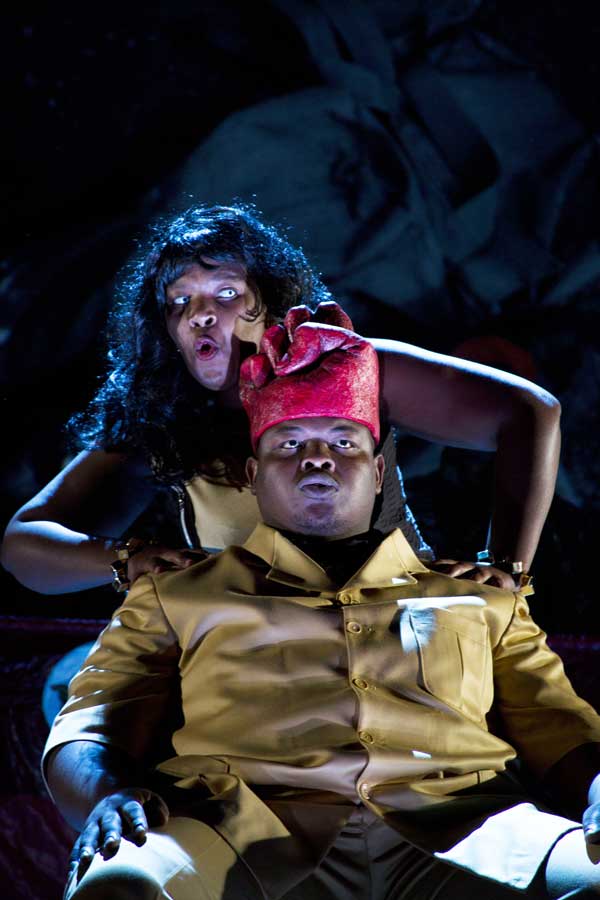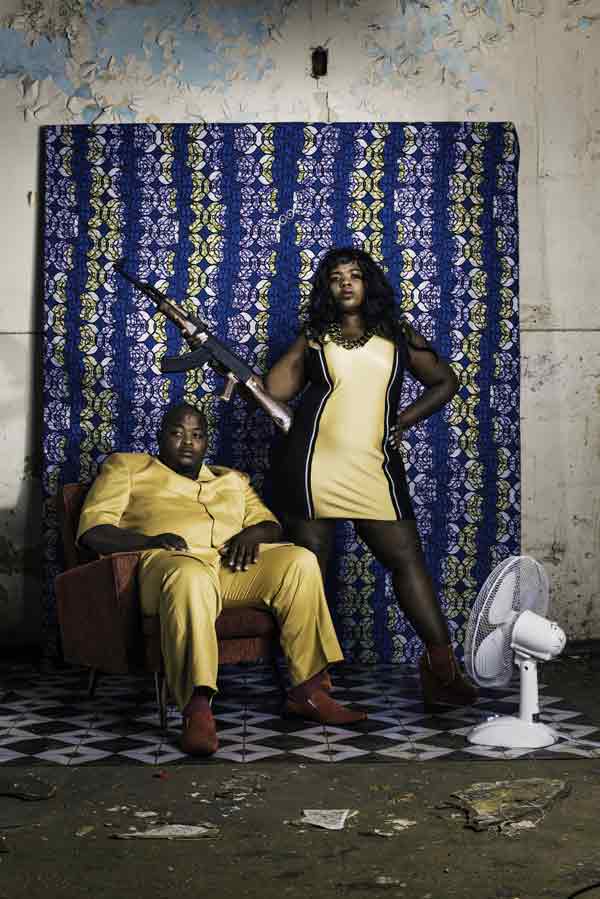If you think Shakespeare is just another dead white male, with little relevance to today’s multi-cultural global world, South Africa’s Third World Bunfight Company’s rendition of 'Macbeth' is set to change your mind.
Setting Verdi’s opera in the darkest heart of Africa, the Democratic Republic of Congo, the company transplants the intrigue of Macbeth into the war zone of the Great Lakes. Congo has been beset by decades of both civil and regional conflict, fuelled by competition for control of its vast mineral riches.
International critics have raved about the opera, and in particular the performance of Nobulumko Mngxekeza, who plays Lady Macbeth. The UK’s 'Telegraph' called Nobulumko a “knockout…manipulating her lustrous soprano with an ease that many an operatic diva would envy.” The Lady tells more:
Why has the company chosen to set this telling of 'Macbeth' in the Congo? Where did the idea come from?
As every country has a story to tell, Congo has its own story to tell and which better better story portrays it like 'Macbeth'. The idea comes from the Director who has spent time in Congo and has seen what is happening and wanted to portray his version of 'Macbeth' in Congo.
 © Nicky Newman
© Nicky NewmanWhat about the situation in Democratic Republic of Congo lends itself to Shakespeare?
Power. Shakespeare's powerful play shows what and how far people will go just to be in a position that is greater than others. Even when you're in that position you get greedy for a higher rank than the one you have and the deception, killing and stealing start at that point.
The opera begins with Congolese refugees finding a chest full of sheet music, costumes and gramophone recordings of Verdi's 'Macbeth'.
Why was it important for these characters to be refugees, and for this issue to be incorporated into the beginning of the opera?
Who better to portray a story than the person who has gone through the ordeal, the refugees fleeing to the camp doesn't mean they have forgotten about what has happened. Some of them have left their loved ones dead and they couldn't even give them a decent burial. The refugees are telling their stories and how they got there trying to create and have a family because they have no one but themselves in the camp and their experiences.
In this version, Macbeth’s three witches are depicted as double-dealing businessmen. Can you tell us about that?
Businessmen seek for what will be profit to them and their partners, the witches become businessman only to strengthen their deal or offer to Macbeth. They don't want their hands dirty and they don't want to be seen as the bad guys. So who better to do their deals on behalf of them but the person that is respected in his village and looked up to by young man that want to be the soldier he is one day. Sometimes you never know how compromised a position you're in until it's too late and you can't change anything but see your life end in front of you.
The orchestra you are performing with – the 'No Borders Orchestra' – is from the Balkans, which, like the Great Lakes region, has been affected by conflict. What has it been like working with this group?
The NBO is family. You should see when we teach each other how to pronounce certain word and the meaning. We have bonded in a way that we wish we'd travel together everywhere we go. But the universe is open for us to learn as much as we can about other cultures.
 Is there anything else you’d like to share with us about Macbeth and your performance?
Is there anything else you’d like to share with us about Macbeth and your performance?'Macbeth' is a very intense story and the performances can take you to your most happiest times and also take you to the darkest moments of your life you don't want, and as a performer your only wish is to pass the message to as many people as you can.
'Macbeth' performs Queensland Performing Arts Centre as part of Brisbane Festival, 15-19 September.






